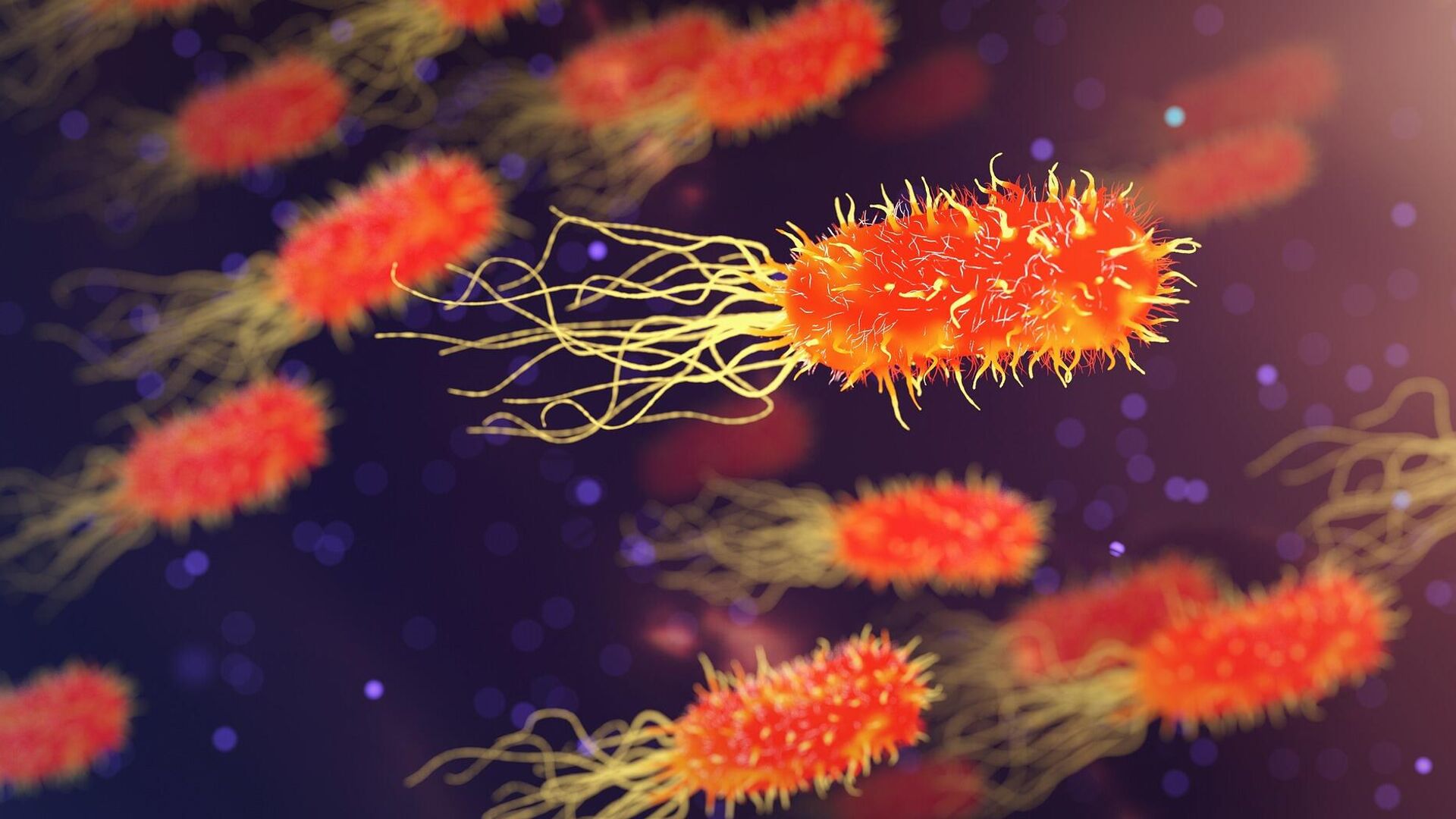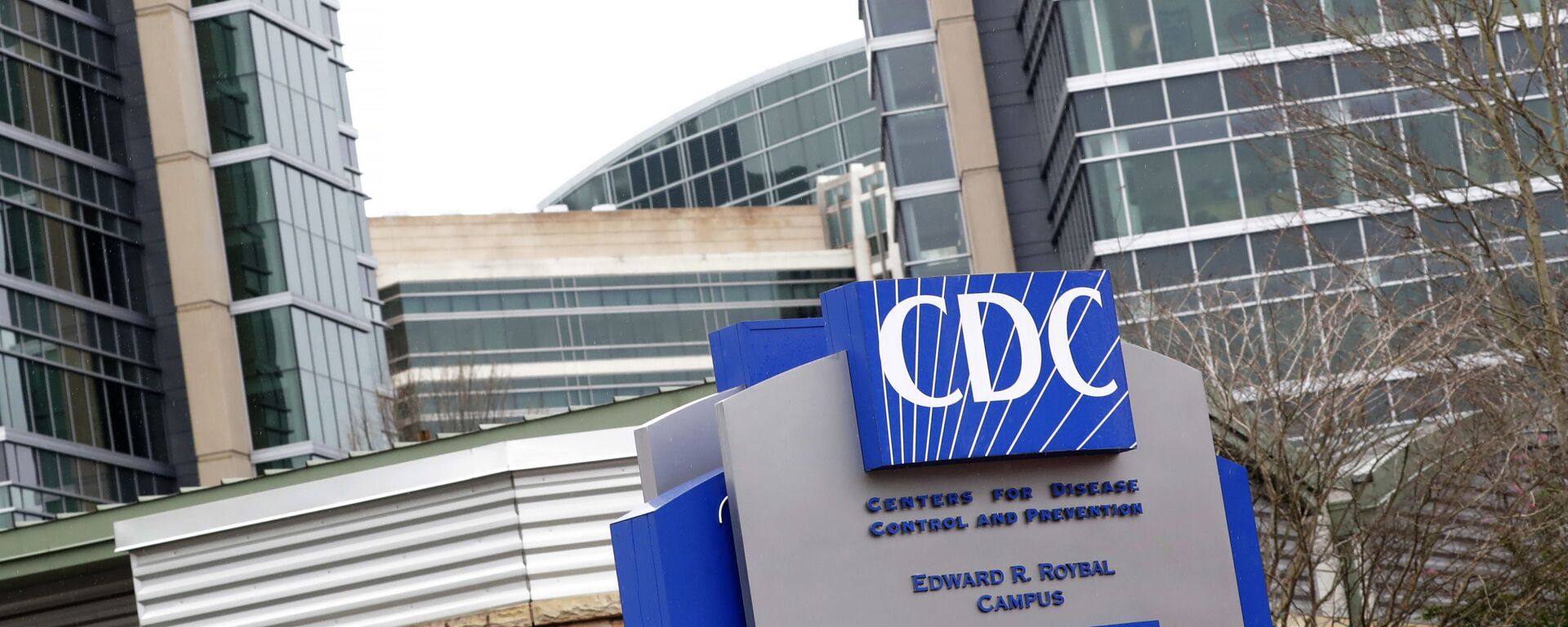https://sputnikglobe.com/20221203/bacteria-use-humans-to-avoid-antibiotics-new-study-reveals-1105013700.html
Bacteria Use Humans to Avoid Antibiotics, New Study Reveals
Bacteria Use Humans to Avoid Antibiotics, New Study Reveals
Sputnik International
Even though antibiotics may initially help dealing with bacteria, in the long run, it gains resistance and scientists have to come up with new treatments. New... 03.12.2022, Sputnik International
2022-12-03T17:52+0000
2022-12-03T17:52+0000
2022-12-03T17:52+0000
science & tech
bacteria
trick
medicine
antibiotics
https://cdn1.img.sputnikglobe.com/img/07e5/0b/11/1090814664_22:0:1899:1056_1920x0_80_0_0_8264c63745bbca029dffbed618f51cdf.jpg
For the first time ever, scientists have observed a sneaky trick bacteria use in order to bypass antibiotics treatment, and it turns out that the microbes actually use their very human hosts for this purpose.According to new research led by Dr. Timothy Barnett, head of the Strep A Pathogenesis and Diagnostics team at the Wesfarmers Centre of Vaccines and Infectious Diseases, based at the Telethon Kids Institute in Perth, this is not least due to the overuse of antibiotics. The case is that some antibiotics work by blocking bacteria's production of folate that microbes need in order to grow and develop, thus preventing it from evolving and stopping the infection. However, bacteria appear to strike back, and actually infest human hosts in order to defend themselves.The worst part? This never-before-seen form of antimicrobial resistance (AMR) appears to be "undetectable under conditions routinely used in pathology laboratories," making it challenging for clinicians to properly prescribe antibiotics when needed. Scientists, however, try to keep up hope even though the findings hint that humanity might find itself in a vicious cycle where antibiotics remain the only way to stop deadly infections, but their overuse leads to higher resistance in bacteria.“In order to preserve the long-term efficacy of antibiotics, we need to further identify and understand new mechanisms of antibiotic resistance, which will aid in the discovery of new antibiotics and allow us to monitor AMR as it arises," Barnett concluded.
https://sputnikglobe.com/20220728/bacteria-that-causes-rare--potentially-fatal-disease-found-in-united-states-for-the-first-time-1097892740.html
Sputnik International
feedback@sputniknews.com
+74956456601
MIA „Rossiya Segodnya“
2022
Sputnik International
feedback@sputniknews.com
+74956456601
MIA „Rossiya Segodnya“
News
en_EN
Sputnik International
feedback@sputniknews.com
+74956456601
MIA „Rossiya Segodnya“
Sputnik International
feedback@sputniknews.com
+74956456601
MIA „Rossiya Segodnya“
how bacteria resists antibiotics, are antibiotics good for you, how do antibiotics work, how bacteria uses humans to avoid antibiotics, what is antimicrobial resistance, what is amr, dr timothy barnett
how bacteria resists antibiotics, are antibiotics good for you, how do antibiotics work, how bacteria uses humans to avoid antibiotics, what is antimicrobial resistance, what is amr, dr timothy barnett
Bacteria Use Humans to Avoid Antibiotics, New Study Reveals
Even though antibiotics may initially help dealing with bacteria, in the long run, it gains resistance and scientists have to come up with new treatments. New research has shed light on exactly how bacteria learned to do this.
For the first time ever, scientists have observed a sneaky trick bacteria use in order to bypass antibiotics treatment, and it turns out that the microbes actually use their very human hosts for this purpose.
According to new
research led by Dr. Timothy Barnett, head of the Strep A Pathogenesis and Diagnostics team at the Wesfarmers Centre of Vaccines and Infectious Diseases, based at the Telethon Kids Institute in Perth, this is not least due to the overuse of antibiotics.
“When looking at an antibiotic commonly prescribed to treat Group A Strep skin infections, we found a mechanism of resistance where, for the first time ever, the bacteria demonstrated the ability to take folates directly from its human host when blocked from producing their own. This makes the antibiotic ineffective and the infection would likely worsen when the patient should be getting better," Dr. Barnett explained.
The case is that some antibiotics work by blocking bacteria's production of folate that microbes need in order to grow and develop, thus preventing it from evolving and stopping the infection. However, bacteria appear to strike back, and actually infest human hosts in order to defend themselves.
The worst part? This never-before-seen form of antimicrobial resistance (AMR) appears to be "undetectable under conditions routinely used in pathology laboratories," making it challenging for clinicians to properly prescribe antibiotics when needed.
“Unfortunately, we suspect this is just the tip of the iceberg – we have identified this mechanism in Group A Strep but it’s likely it will be a broader issue across other bacterial pathogens," Barnett added.
Scientists, however, try to keep up hope even though the findings hint that humanity might find itself in a vicious cycle where antibiotics remain the only way to stop deadly infections, but their overuse leads to higher resistance in bacteria.
“In order to preserve the long-term efficacy of antibiotics, we need to further identify and understand new mechanisms of antibiotic resistance, which will aid in the discovery of new antibiotics and allow us to monitor AMR as it arises," Barnett concluded.


